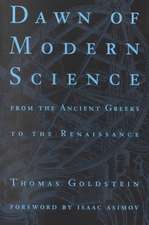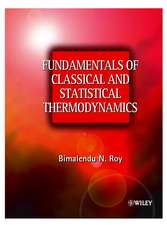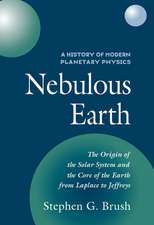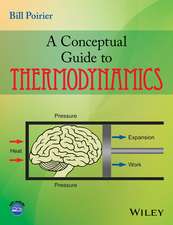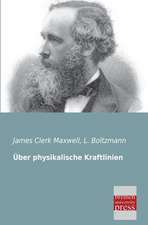Theory of Heat: Cambridge Library Collection - Physical Sciences
Autor James Clerk Maxwellen Limba Engleză Paperback – iun 2011
| Toate formatele și edițiile | Preț | Express |
|---|---|---|
| Paperback (3) | 99.17 lei 3-5 săpt. | |
| Dover Publications – 27 mar 2003 | 99.17 lei 3-5 săpt. | |
| Hansebooks – 30 mai 2016 | 240.95 lei 6-8 săpt. | |
| Cambridge University Press – iun 2011 | 366.37 lei 6-8 săpt. |
Din seria Cambridge Library Collection - Physical Sciences
- 14%
 Preț: 595.05 lei
Preț: 595.05 lei - 23%
 Preț: 2112.84 lei
Preț: 2112.84 lei - 23%
 Preț: 833.69 lei
Preț: 833.69 lei - 23%
 Preț: 1134.09 lei
Preț: 1134.09 lei -
 Preț: 332.28 lei
Preț: 332.28 lei -
 Preț: 466.14 lei
Preț: 466.14 lei -
 Preț: 422.01 lei
Preț: 422.01 lei -
 Preț: 509.82 lei
Preț: 509.82 lei -
 Preț: 466.95 lei
Preț: 466.95 lei -
 Preț: 443.42 lei
Preț: 443.42 lei -
 Preț: 422.01 lei
Preț: 422.01 lei -
 Preț: 329.56 lei
Preț: 329.56 lei -
 Preț: 255.68 lei
Preț: 255.68 lei -
 Preț: 329.56 lei
Preț: 329.56 lei -
 Preț: 464.99 lei
Preț: 464.99 lei -
 Preț: 418.91 lei
Preț: 418.91 lei - 19%
 Preț: 461.39 lei
Preț: 461.39 lei -
 Preț: 520.98 lei
Preț: 520.98 lei -
 Preț: 369.45 lei
Preț: 369.45 lei - 19%
 Preț: 455.00 lei
Preț: 455.00 lei -
 Preț: 404.12 lei
Preț: 404.12 lei - 19%
 Preț: 455.62 lei
Preț: 455.62 lei -
 Preț: 338.14 lei
Preț: 338.14 lei -
 Preț: 282.18 lei
Preț: 282.18 lei -
 Preț: 375.39 lei
Preț: 375.39 lei -
 Preț: 465.60 lei
Preț: 465.60 lei -
 Preț: 329.56 lei
Preț: 329.56 lei - 19%
 Preț: 498.49 lei
Preț: 498.49 lei -
 Preț: 421.20 lei
Preț: 421.20 lei - 19%
 Preț: 499.85 lei
Preț: 499.85 lei -
 Preț: 252.96 lei
Preț: 252.96 lei -
 Preț: 361.56 lei
Preț: 361.56 lei -
 Preț: 246.75 lei
Preț: 246.75 lei - 19%
 Preț: 534.09 lei
Preț: 534.09 lei -
 Preț: 419.51 lei
Preț: 419.51 lei -
 Preț: 521.57 lei
Preț: 521.57 lei - 19%
 Preț: 455.92 lei
Preț: 455.92 lei -
 Preț: 471.36 lei
Preț: 471.36 lei -
 Preț: 352.34 lei
Preț: 352.34 lei -
 Preț: 420.82 lei
Preț: 420.82 lei -
 Preț: 419.66 lei
Preț: 419.66 lei - 19%
 Preț: 540.18 lei
Preț: 540.18 lei
Preț: 366.37 lei
Nou
Puncte Express: 550
Preț estimativ în valută:
70.11€ • 74.97$ • 58.45£
70.11€ • 74.97$ • 58.45£
Carte tipărită la comandă
Livrare economică 18 aprilie-02 mai
Preluare comenzi: 021 569.72.76
Specificații
ISBN-13: 9781108032018
ISBN-10: 110803201X
Pagini: 328
Ilustrații: 41 b/w illus.
Dimensiuni: 140 x 216 x 19 mm
Greutate: 0.42 kg
Editura: Cambridge University Press
Colecția Cambridge University Press
Seria Cambridge Library Collection - Physical Sciences
Locul publicării:Cambridge, United Kingdom
ISBN-10: 110803201X
Pagini: 328
Ilustrații: 41 b/w illus.
Dimensiuni: 140 x 216 x 19 mm
Greutate: 0.42 kg
Editura: Cambridge University Press
Colecția Cambridge University Press
Seria Cambridge Library Collection - Physical Sciences
Locul publicării:Cambridge, United Kingdom
Cuprins
Preface; 1. Introduction; 2. Thermometry, or the registration of temperature; 3. Calorimetry, or the measurement of heat; 4. Elementary dynamical principles; 5. Measurement of internal forces and their effects; 6. Lines of equal temperature on the indicator diagram; 7. Adiabatic lines; 8. Heat engines; 9. Relations between the physical properties of a substance; 10. Latent heat; 11. Thermodynamics of gases; 12. On the intrinsic energy of a system of bodies; 13. On free expansion; 14. Determination of heights by the barometer; 15. On the propagation of waves of longitudinal disturbance; 16. On radiation; 17. On convection currents; 18. On the diffusion of heat by conduction; 19. On the diffusion of fluids; 20. On capillarity; 21. On elasticity and viscosity; 22. Molecular theory of the constitution of bodies.
Descriere
First published in 1871, this is Maxwell's masterly account of the foundations of thermodynamics and statistical mechanics.
Notă biografică
James Clerk Maxwell: In His Own Words — And Others
Dover reprinted Maxwell's Treatise on Electricity and Magnetism in 1954, surely one of the first classics of scientific literature over a thousand pages in length to be given new life and accessibility to students and researchers as a result of the paperback revolution of the 1950s. Matter and Motion followed in 1991 and Theory of Heat in 2001. Some towering figures in science have to speak for themselves. Such is James Clerk Maxwell (1813-1879), the Scottish physicist and mathematician who formulated the basic equations of classical electromagnetic theory. In the Author's Own Words:
"We may find illustrations of the highest doctrines of science in games and gymnastics, in traveling by land and by water, in storms of the air and of the sea, and wherever there is matter in motion." "The 2nd law of thermodynamics has the same degree of truth as the statement that if you throw a tumblerful of water into the sea, you cannot get the same tumblerful of water out again." — James Clerk Maxwell Critical Acclaim for James Clerk Maxwell:
"From a long view of the history of mankind — seen from, say, ten thousand years from now — there can be little doubt that the most significant event of the 19th century will be judged as Maxwell's discovery of the laws of electrodynamics. The American Civil War will pale into provincial insignificance in comparison with this important scientific event of the same decade." — Richard P. Feynman "Maxwell's equations have had a greater impact on human history than any ten presidents." — Carl Sagan



